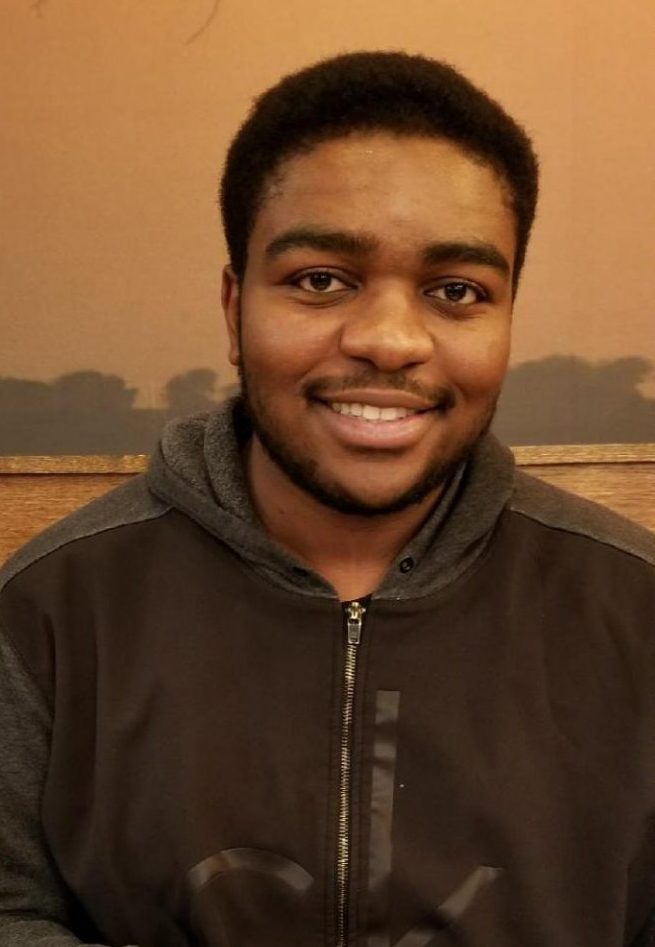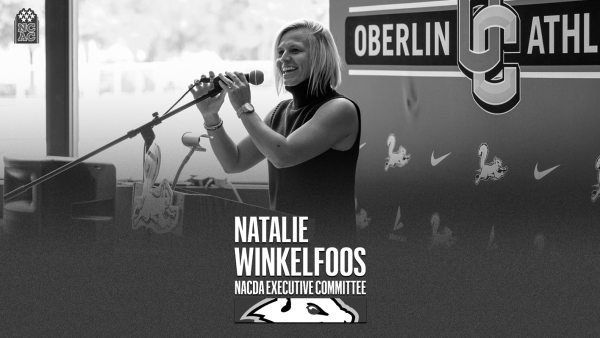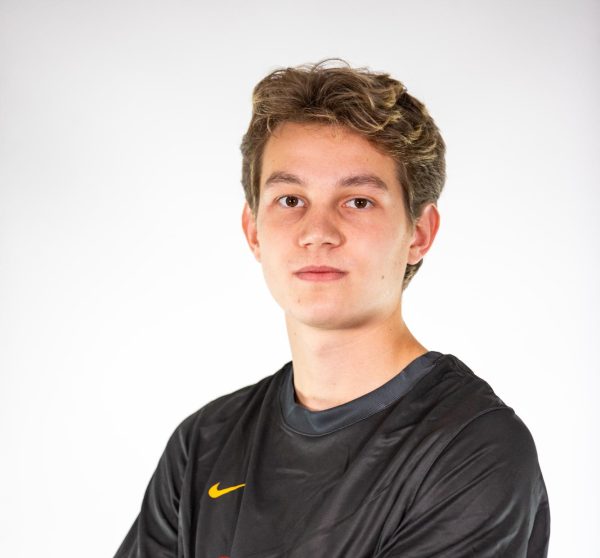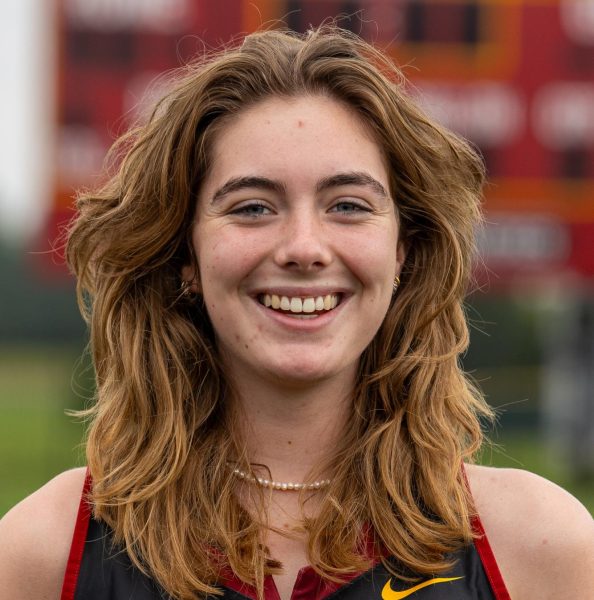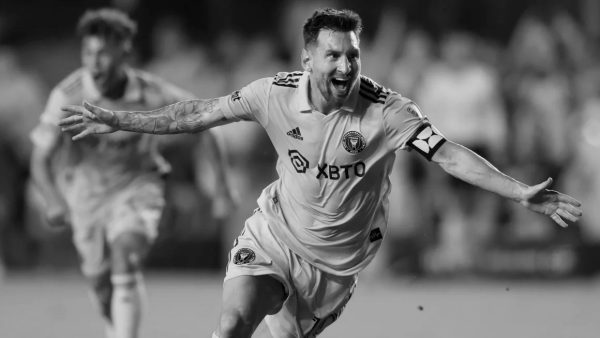In The Locker Room with Sam Paul, Men’s Rugby Captain
Sam Paul
Although the Oberlin Gruffs haven’t won a single game this season, team members resoundingly share that the current president of the team, College senior and History major Sam Paul, has made the team experience very fulfilling. Because rugby is a club sport at Oberlin, the president effectively acts as the team’s coach. Paul works hard and leads by example, which has left a lasting positive impact on the rest of the team.
This interview has been edited for length and clarity.
What first drew you to rugby?
I wanted to play football in high school, but my parents were doctors [and] worried about me getting concussions. They never let me play. When I got to college, I figured now would be the best time since I’m by myself and don’t need my parents’ approval. Because I wasn’t in shape to play varsity, I thought I could try a club sport.
What roles and responsibilities do you have as president?
The main thing is to be the face and head of the team. I’m in charge of communicating with the Ohio Rugby Referees Society heads, with [Associate Director of Athletics for Intercollegiate Sports] Eric Lahetta, who directs club sports at Oberlin, and with the Great Lakes Rugby Conference president. Every other Wednesday, I attend club sports council meetings. In recent years, our team has become less disciplined, so I’ve had to pick up the slack. The president is supposed to be somebody that is responsible and mature enough to say “if someone else won’t do it, I will.”
What have you learned from watching how past presidents have operated?
I’ve learned that it’s important to be proactive. When I joined my [first] year, I had no idea that administrative things were happening because the club was run smoothly. That is something that changed in the years after. Despite the last two presidents being charismatic, great players who were fun to be around, they were more disorganized than they should’ve been. Presidents should make sure that everything gets done on time so there are no major issues. If something goes wrong with us, that might spread to the rest of the league.
Another thing that I’ve learned from them is to always keep your head up as president. You can’t let any obstacles impact how you interact with and run the team. As president, you have to give off that wave of confidence to others. If there are administrative problems, you just have to acknowledge that those problems are there and continue to function as a president. Rugby is a club sport. It can be serious, but you should remind yourself that this is fun. We’re here to have a good time playing a game that we love. That’s always important to keep in mind.
What is the recruiting process like?
There are three ways we recruit people. The main one is knowing other people that might be interested in playing. There’s been a strong tradition of people talking to their friends about rugby and bringing those guys into a practice. Those guys love the game as soon as they start playing it.
Another way we recruit is through the club sports fair. Essentially, you set up a table, have a section in a notebook for people’s information, and then you flag people down. Usually not a lot of Obies want to come up to the men’s rugby table because they have conceptions about rugby being a dangerous sport, but if you can get people to sign up for information about first practices, that’s a success. Lastly, we try to poach senior varsity athletes who are done with the sports that they’re playing.
Why do think so many first-years are interested in rugby this year?
That’s a good question. I think this year it’s a combination of larger enrollment numbers and the fact that we were able to throw out the bait. We caught as many players as we could into the net. Enough people came, did some practices, and said, “This is something that we want to do.”
How do you deal with training so many people who are new to rugby?
It’s always difficult to train new players, especially in a contact sport where there’s no protective gear. You want to make sure that everybody stays as safe as possible. One of the things that helped me out was a coach training conference. It gave me a better understanding of what I need to be doing in order to effectively integrate players who have never played the game before. That, combined with some of the knowledge that had been passed down from other presidents, made my job easier. If you’re making a simple, avoidable mistake, I’m going to scream and yell at you, but if it’s clear to me that you simply need more practice, I’ll try to [address that] one-on-one and isolate those issues so that I can drill them into perfection. It’s more difficult this year because there are more new players to teach like that, but I do the best that I can.
What do you enjoy the most about the rugby season?
The main thing I’m looking forward to is playing games with the team every weekend. For one, if you’re traveling away, you get a chance to leave Oberlin for the day. It’s a different place to be so that’s always great. Also I enjoy playing rugby. When I think about it, practices and socials are fun, but not that fun. So for me, that’s what I look forward to the most: getting out on Saturdays and doing my thing while also seeing [the team] improve every week.


